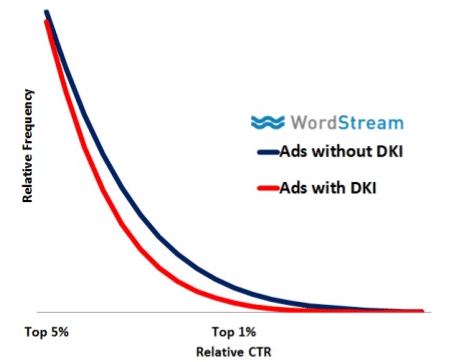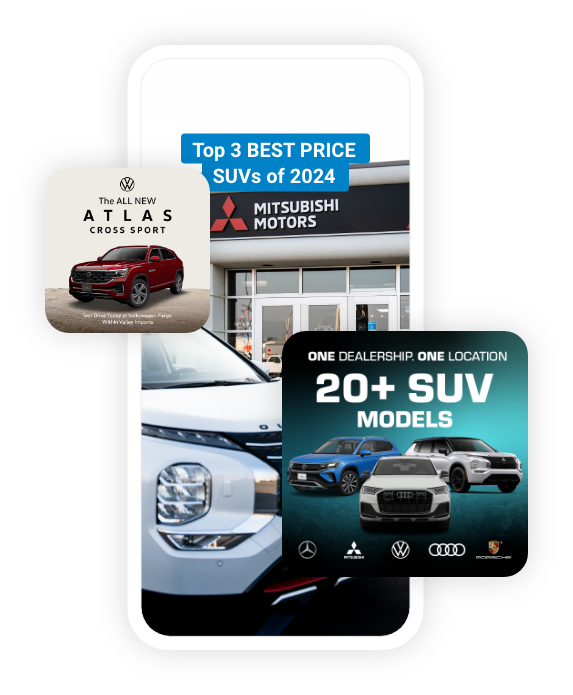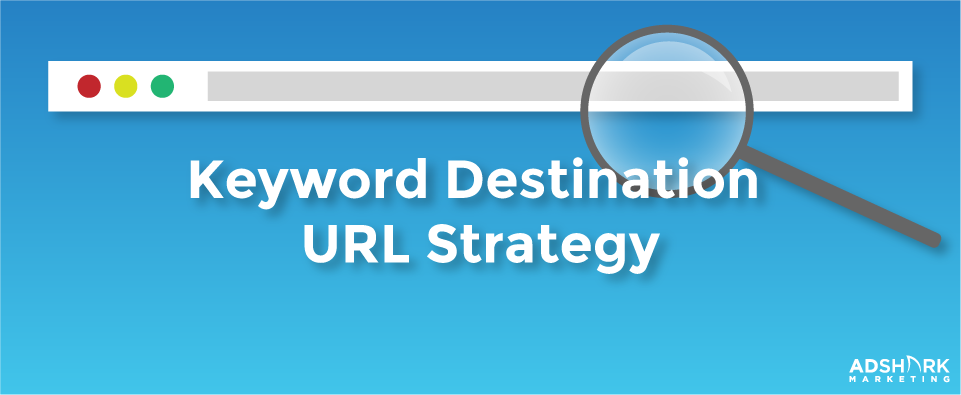Keyword Destination URL Strategy
Have you ever wished your ads could more accurately target users’ exact search queries? Are you looking to sell dozens or hundreds of products but realize how impractical it would be to create separate ad copy for each product? For each of the products you offer, wouldn’t you like to provide a specific link when a user searches for it? The use of dynamic keyword insertion, as well as setting keyword-level destination URLs, can be very helpful solutions to these issues and others.
Why keyword-level destination URL & dynamic keyword insertion?
Setting keyword-level destination URLs is a great solution for companies that have thousands of product SKUS. When using product-specific keywords, you can override the adgroup destination URL by implementing a keyword destination URL to the product-specific landing page.
When using multiple product keywords in one ad group, it’s a good idea to use dynamic keyword insertion (DKI). Dynamic keyword insertion will put the user’s search query into the ad, which increases relevance.
If the user’s search query doesn’t fit in the headline space of 25 characters, it defaults to a headline you’ve selected for the adgroup. Your default headline should be encompassing enough to represent all your products within the adgroup.
Using keyword-level destination URLs has several advantages over adgroup destination URLs for large e-commerce websites. These include:
1. Increased Quality Score
A higher quality score is important because it will means you pay less for higher positions. Quality score takes into account several variables that Google balances to give your quality score.
A quality score of 8 will pay less for top position than a quality score of 5. Having higher quality scores can save thousands of dollars over the life of a campaign. This is no small consideration. The larger the advertiser’s account, the more money it will save from increased quality scores.
2. Decreased Bounce Rate From Paid Traffic
Inserting your destination URL at the keyword level for product-specific terms will bring your paid traffic to product-specific landing pages.
It doesn’t make sense to pay for traffic to your website and then direct the user to a page that doesn’t match their search query. When people using specific product keywords in one adgroup are directed to a category page instead of a product-specific page, the bounce rate is higher.
The bounce rate is the amount of traffic that comes to your site and leaves without exploring any other pages. From what I’ve seen, a bounce rate of 30% is considered strong for paid traffic.
There are a lot of variables that go into decreasing your bounce rate, but sending users to a product-specific page instead of a category page when they make product-specific search queries can only lower your bounce rate and make your users happy.
3. Increased CTR Due To Search-Specific DKI
Increasing your ad relevance by using DKI places the user’s search query into the headline of your ad. When a user’s search query is in the ad, it becomes bolded. That will make your ad stand out more and generally lead to higher click-through rates.

From our friends at WordStream. To see their article go to http://www.wordstream.com/blog/ws/2014/04/17/
To summarize the graphic from WordStream, ads with DKI will fare better than those that don’t on average. While it’s easy to have a well performing ad using DKI, it’s rare to see ads with DKI in the top 1% in terms of click-through rates.
When using dynamic keyword insertion, you want to make sure that you have tight keyword groupings. Using broad match keywords may not bring relevant clicks. Use exact, phrase, or broad match modified to keep your targeting tight and specific.
Another best practice is to not use competitors’ terms when using dynamic keyword insertion. While it’s fine to use a competitor’s brand term as a targeted keyword, it’s not fine to include their name in your ad. That could bring about a lawsuit.
In addition to creating more ad relevance through DKI, you can tailor your destination URL to users’ specific search queries through setting keyword-level destination URLs.
Implementing keyword-level destination URLs & dynamic keyword insertion in Adwords editor
Implementing keywor- level destination URLs in adwords editor is relatively straightforward. Build out your campaign and adgroups as you normally would in Adwords Editor.
When adding keywords, note that below the keyword is an area called “destination URL”.
Note that in this example I’m using a highly targeted product term. A search won’t trigger our ad unless the words “pontoon centering rack” are included at some point.
I link to the product-specific page so users will be directly brought to the item they searched for. Implementing the keyword destination URL will override the adgroup destination URL.
Once you’ve finished adding all your keywords, move on to your text ads.
To set up dynamic keyword insertion in your text ads, use the {} brackets. An example is {KeyWord:Boat Lift Accessories}. The term after “KeyWord:” is your default headline when the user’s search query is longer than the maxium characters allowed by a text ad’s headline.
The adgroup destination URL will be for any keywords that you didn’t assign a keyword-level destination URL to. Keywords that are category specific instead of product specific would be an example.
In conclusion
DKI and keyword-level destination URLs are a couple tools in your arsenal when dealing with hundreds of products while building your campaigns. The use of these features can help take your ad group to the next level from being simply category specific to more product specific.
Experimenting with these features in other situations as well can help you see the impact they can have in creating more relevant ad copy and giving users a better landing page experience, potentially lowering bounce rates and more.
In addition
Want to know more about how DKI and keyword-level destination URLs can impact your search advertising? Contact us for a free, customized advertising solution for your business.
Ready To Grow?
Let's Talk!




